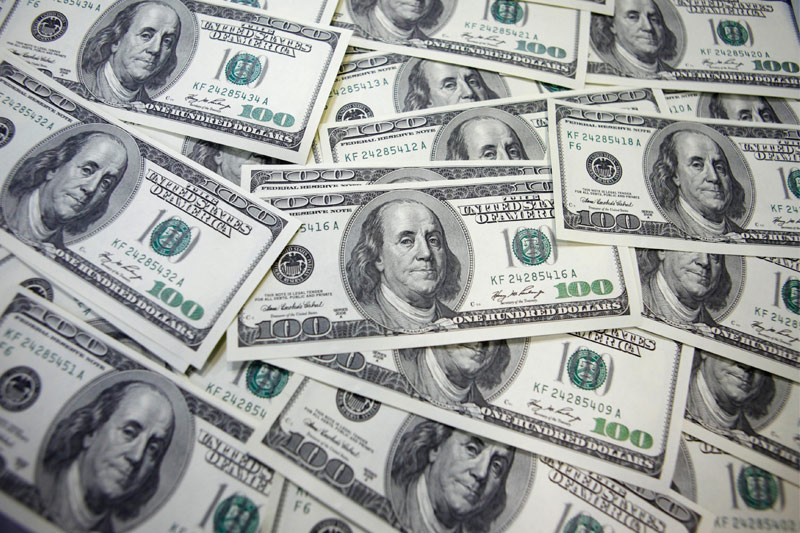(Corrects erroneous timeline on dollar's weekly loss in first paragraph)
* Dollar index on track for worst weekly fall since Feb 2016
* Yen, euro, sterling headed for large weekly gains
* Japanese govt reappoints Kuroda as BOJ governor
By Shinichi Saoshiro
TOKYO, Feb 16 (Reuters) - The dollar slipped to a three-year low against a basket of currencies on Friday, headed for its biggest weekly loss in two years, as bearish factors offset support the U.S. currency could take from rising Treasury yields.
Extending overnight losses, the dollar's index against a group of six major currencies lost about 0.2 percent to 88.378 .DXY , the lowest since December 2014. The index was on track to lose more than 2 percent on the week in its largest decline since February 2016.
The U.S. currency has been weighed down by a variety of factors this year, including concerns that Washington might pursue a weak dollar strategy and the perceived erosion of its yield advantage as other countries start to scale back easy monetary policy.
Traders also suspect that confidence in the dollar has been eroded by mounting worries over the U.S. budget deficit which is projected to balloon to near $1 trillion in 2019 amid a government spending splurge and large corporate tax cuts.
"There really are no signs of the dollar recovering any time soon. Participants are bracing for dollar/yen to head towards 105 and the euro to climb past $1.25," said Shin Kadota, senior strategist at Barclays (LON:BARC) in Tokyo.
"It's difficult for the market to see the dollar rebounding, especially as decent U.S. fundamentals seem to be providing no support for the currency," Kadota said.
Indeed, the dollar failed to gain momentum after data on Wednesday showed U.S. inflation was stronger than expected in January, sending Treasury yields to four-year highs, as investors bet the Federal Reserve could increase interest rates as many as four times this year.
The euro was up 0.2 percent at $1.2531 EUR= after reaching a three-year top of $1.2545 and poised to gain 2.2 percent this week.
The dollar was little changed at 106.070 yen JPY= after slipping to 106.020, its lowest in 15 months. It was on track for a weekly loss of 2.5 percent.
The yen showed little reaction to the reappointment of Haruhiko Kuroda as Bank of Japan governor and the nomination of BOJ executive director Masayoshi Amamiya and Waseda University professor Masazumi Wakatabe as deputy governors. are no significant changes to the current BOJ regime with the governor chosen for another term, and a central banker and a reflationist academic picked as his deputies," said Shusuke Yamada, chief Japan FX strategist at Bank of America Merrill Lynch (NYSE:BAC).
"This should clear some uncertainty regarding BOJ personnel, but it unlikely to impact the currency market at a time when the dollar is broadly weaker," Yamada said.
The pound nudged up 0.1 percent to $1.4118 GBP=D3 , having risen about 2 percent on the week.
The Australian dollar steady at $0.7950 AUD=D4 .
The Aussie, sensitive to shifts in risk sentiment, had slipped to near 1-1/2-month low of $0.7759 a week ago during a tumble in global equities before bouncing back.
